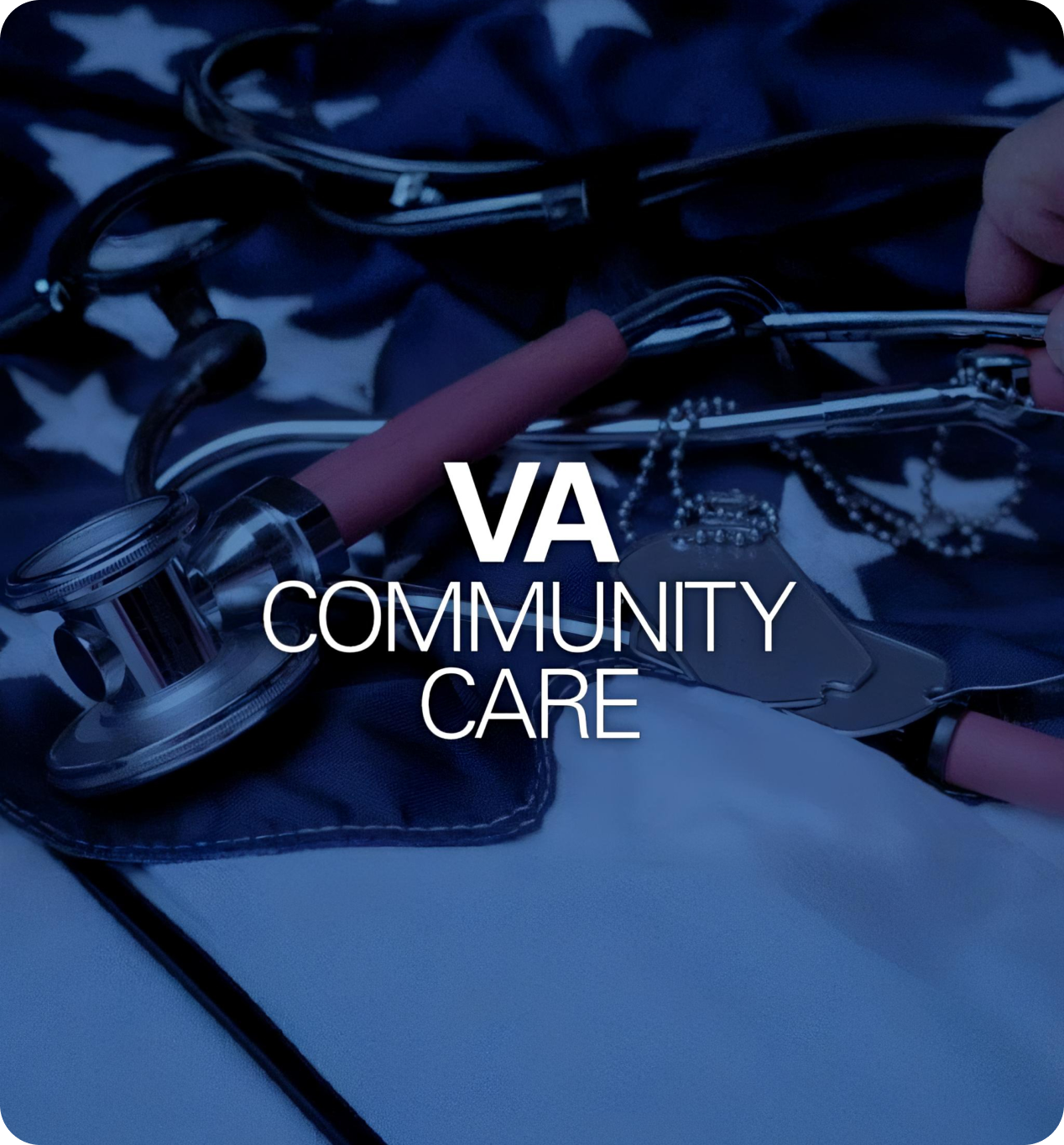Join
The VA Community Care Network
A Guide for Cardiac Catheterization Lab (Cath Lab) Providers
In California, independent Physician Assistants (PAs) can bill the Department of Veterans Affairs (VA) for services provided to veterans, but it’s essential to understand the regulations surrounding this process.
Welcome to Veterans Desk, your trusted resource for helping healthcare providers serve our nation’s veterans. This guide is designed for interventional cardiologists, cardiac cath lab teams, and diagnostic cardiac facilities who provide procedures such as coronary angiography, PCI, and the evaluation of structural or ischemic heart disease. If your facility is equipped to offer cardiac catheterization services, this guide outlines everything you need to join the VA Community Care Network (CCN).

Step-by-Step Enrollment in the VA CCN
Verify Your Credentials
Ensure you meet the eligibility standards:
- Interventional cardiologists must hold board certification.
- Cath lab facilities must be properly credentialed and accredited.
Prepare Required Documentation
Submit the following:
- Valid medical licenses, NPI, and malpractice insurance
- Hospital or outpatient cath lab accreditation
- Staff credentials (e.g., ACLS, RCIS, RN licensure)
- W-9 and organizational profile (for facilities)
Submit Your Application
Choose the correct regional CCN portal:
Complete Mandatory VA Training
VA requires training for hospital-based and specialty care providers:
Credentialing & Finalization
- Undergo facility and provider credentialing.
- Sign CCN agreements and begin receiving authorized referrals.

Why Cath Lab Services Matter to Veterans
Heart disease is one of the leading causes of morbidity and mortality among U.S. veterans. From combat-related stress to lifestyle risk factors, veterans are highly vulnerable to cardiovascular disease. Timely access to elective and emergent cardiac catheterization procedures—including PCI and stenting—can prevent long-term cardiac damage and save lives.
As a cath lab provider, your services support:
- Early diagnosis of coronary artery disease
- Emergency intervention for acute myocardial infarction
- Structural heart assessments using advanced imaging
- Post-procedure cardiac follow-up and care coordination


Key Benefits of Joining the VA CCN
- Deliver Comprehensive Cardiac Services: Provide PCI, angioplasty, stenting, and diagnostic imaging under VA authorization.
- Emergency & Elective Access: Serve veterans in both emergent and outpatient care settings.
- Fair Market Reimbursement: Receive competitive payment rates for both professional and facility-based services.
- Collaborative Care: Coordinate with VA and community-based hospitals to ensure seamless transitions and follow-up.
- Cardiology Integration: Enable VA patients to receive long-term management by non-VA cardiologists when appropriate.

Bridging the Gap for Veterans

Educational Support & Professional Growth
VA Education Benefits – Eligible veterans and dependents can use the GI Bill® to pursue training in cardiovascular technology, interventional cardiology, and allied health programs relevant to cath lab roles.
Loan Repayment Programs – Cath lab professionals, including interventional cardiologists, RNs, and RCIS-certified techs, may qualify for Education Debt Reduction Program (EDRP) and Public Service Loan Forgiveness (PSLF) when working in VA or affiliated facilities.

Transitioning from Military Service
If you’re a former military cardiologist, radiologist, or medical officer:
- Convert your credentials to civilian equivalents
- Explore expedited licensing options for veterans.
- Emphasize experience with combat-related cardiac care or deployment screening in your CCN application
Frequently Asked Questions (FAQs)
Are elective and emergency cath procedures covered by VA?
Yes. Both elective and urgent cardiac catheterization procedures are covered when authorized or when performed under emergent circumstances.
Can our cath lab bill separately for the facility and the provider?
Yes. Facilities and physicians may bill separately when using distinct NPIs and submitting appropriate claims documentation.
Are follow-up visits with cardiologists included?
Yes. Follow-up care after PCI, angiography, or stenting is typically covered under the veteran’s care plan.
Can we offer services 24/7 for emergencies?
Yes. If your facility offers 24/7 access, be sure to indicate this during enrollment, as it increases your referral eligibility.

